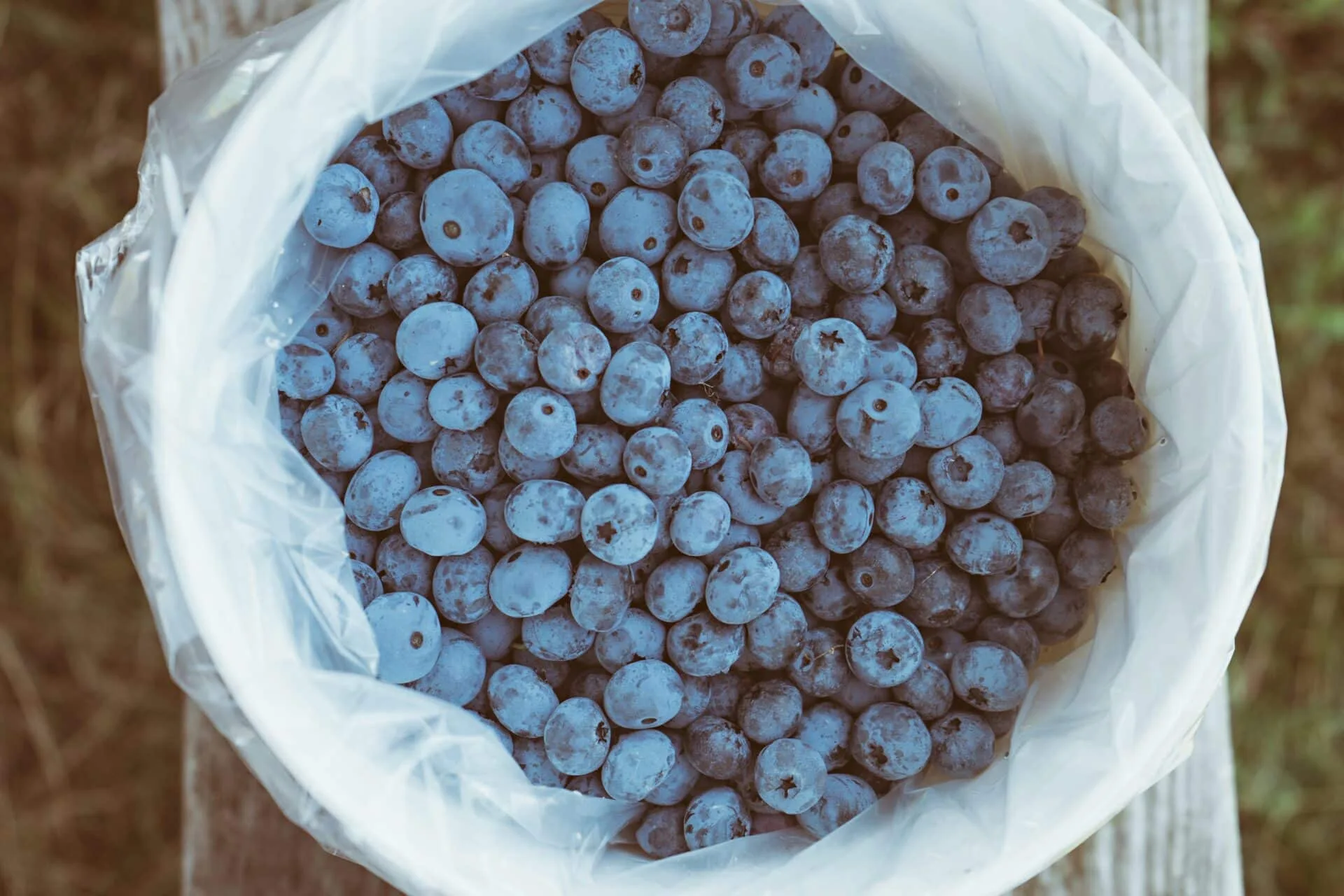Diverticulitis is a digestive condition that affects the large intestine. It is characterized by inflammation and infection of the diverticula, which are small pockets that form in the walls of the intestine. While certain foods may need to be avoided with diverticulitis, many people wonder if they can still eat blueberries. In this article, we discuss whether blueberries are safe to eat when you have diverticulitis.Yes, you can eat blueberries with diverticulitis. It is important to remember to eat them in moderation as part of a healthy diet. Blueberries are a good source of dietary fiber, which can help reduce inflammation associated with diverticulitis. Additionally, blueberries contain antioxidants and vitamins that may help reduce the risk of flare-ups.
Diverticulitis
Diverticulitis is a condition that occurs when small sacs or pockets in the lining of the intestine become inflamed or infected. It typically affects individuals over the age of 40. These sacs are called diverticula and are usually found in the lower part of the large intestine (colon). When they become inflamed or infected, a person may experience abdominal pain, fever, nausea, and constipation. In some cases, diverticulitis can lead to more serious complications such as abscesses, fistulas, and perforations of the colon. Treatment for diverticulitis may include antibiotics, a low-fiber diet and/or surgery. If left untreated, it can lead to serious health problems such as peritonitis (a life-threatening infection of the abdominal cavity).
Early diagnosis and treatment of diverticulitis is essential for preventing complications. People experiencing symptoms should consult with their doctor immediately. Diagnosis is usually made through a combination of physical examination, blood tests, CT scans or other imaging tests. Treatment depends on the severity of symptoms and may include antibiotics to treat any infection present as well as dietary changes to reduce inflammation. Surgery may be necessary in severe cases or if there is an abscess present. Following treatment for diverticulitis it is important to make lifestyle changes including eating a high-fiber diet and exercising regularly to help prevent future episodes.
Causes of Diverticulitis
Diverticulitis occurs when small pouches (diverticula) in the digestive tract become infected or inflamed. These pouches are likely caused by a combination of genetic and lifestyle factors. The most common causes of diverticulitis are a low-fiber diet, lack of exercise, and advancing age.
A low-fiber diet is thought to be the main factor in the development of diverticula. Fiber helps to soften stool, making it easier to pass through the intestines. When there is not enough fiber in the diet, the stools become harder and have to pass through narrow openings in the intestine wall, which can create pressure that leads to diverticula formation.
Lack of exercise can also increase pressure on the intestinal wall, leading to the formation of diverticula. Regular physical activity helps to keep bowels regular and decreases pressure on the intestinal walls.
Advancing age is also a contributing factor for diverticular disease because as people age their intestines weaken and become more prone to developing diverticula.
The risk factors for developing diverticular disease include consuming a low-fiber diet, being inactive or sedentary, being overweight or obese, smoking cigarettes, drinking alcohol in excess, having type 2 diabetes or metabolic syndrome, and taking certain medications such as nonsteroidal anti-inflammatory drugs (NSAIDs).
Symptoms of Diverticulitis
Diverticulitis is a condition in which small pouches (diverticula) in the lining of your digestive tract become inflamed or infected. Common symptoms of diverticulitis include abdominal pain, tenderness, and cramping on the left side of your abdomen. You may also experience nausea, vomiting, fever, chills, and constipation. In some cases, you may experience diarrhea or bloody stools. If the infection is severe or left untreated, you may even develop an abscess or fistula. It’s important to seek medical attention as soon as possible if you suspect you may have diverticulitis.
Your doctor will likely perform a physical exam to check for signs of infection and order a series of tests to confirm the diagnosis. These tests may include blood tests, imaging tests such as X-rays or CT scans, and a stool sample. Treatment for diverticulitis typically involves antibiotics and rest. In some cases, surgery may be necessary to remove the affected area if it’s causing severe complications.
Diagnosis of Diverticulitis
Diverticulitis is a medical condition in which small pouches form in the walls of the colon. These pouches, known as diverticula, can become inflamed or infected. The diagnosis of diverticulitis is usually based on a combination of symptoms, physical examination, and imaging tests.
The most common symptom of diverticulitis is abdominal pain and tenderness in the lower left side of the abdomen. Other symptoms may include fever, nausea, vomiting, constipation or diarrhea, and changes in bowel habits. Your doctor may also feel a mass or tenderness in the area during a physical examination.
Imaging tests such as CT scans or X-rays are used to confirm the diagnosis. The tests can detect inflammation or an infection in the diverticula as well as any potential complications like an abscess or fistula. Blood tests may be ordered to check for signs of infection and inflammation.
In some cases, a colonoscopy may be recommended to rule out other causes of abdominal pain and to look for any evidence of damage to the colon wall due to diverticulitis. This procedure involves threading a flexible tube with a tiny camera through your rectum and into your colon so that your doctor can take pictures and biopsy samples if needed.
Your doctor will also ask about your medical history and risk factors for developing diverticulitis such as age, diet, smoking history, family history, medications you are taking, and any other illnesses you have had in the past. Knowing all these factors can help them make an accurate diagnosis and develop an effective treatment plan.

Treatment for Diverticulitis
Diverticulitis is a condition characterized by inflammation of the diverticula, which are small pockets in the walls of the colon. Treatment for diverticulitis depends on the severity of the condition. Mild cases of diverticulitis can usually be treated with antibiotics and a liquid or low-fiber diet. Severe cases may require hospitalization and surgery to treat any complications.
Nonsteroidal anti-inflammatory drugs (NSAIDs) can also be used to reduce inflammation and pain associated with diverticulitis. Surgery is sometimes necessary if there is an abscess or obstruction in the colon or if there is a risk of perforation. Surgery may involve removal of part or all of the affected portion of the colon, known as a resection.
In some cases, it may be necessary to perform a colostomy, in which part of the colon is diverted through an opening in the abdominal wall so that waste can be collected in an external bag. Nutrition therapy may also be recommended to ensure adequate intake of vitamins and minerals, as well as fiber to help prevent constipation and improve overall digestive health.
In addition to medical treatment, lifestyle changes can help manage symptoms associated with diverticulitis. Increasing dietary fiber intake slowly over time can help prevent constipation and reduce strain on the digestive system as well as promote healing. Regular exercise can also help improve overall health and reduce stress levels, which could contribute to flare-ups.
What are Blueberries?
Blueberries are small, round, blue-colored berries that belong to the Vaccinium genus of plants. They are one of the most popular types of berry in the United States and are widely cultivated and consumed around the world. Blueberries have a sweet flavor and can be eaten fresh or used in a variety of recipes, such as jams, muffins, pies, and more. Blueberries are also a good source of vitamins C and K, as well as dietary fiber. They contain antioxidants that may help reduce inflammation and protect against certain diseases. Blueberries can also be frozen for use in smoothies or other recipes.
The health benefits of blueberry consumption have been studied extensively over the years. Studies suggest that blueberries may help reduce the risk of heart disease, cancer, diabetes, and obesity. Additionally, blueberries may help improve memory and cognitive function due to their high levels of flavonoids. Lastly, blueberry consumption has been linked to better eye health due to their antioxidant content.
Blueberries are an easy-to-find fruit that is available year-round in most grocery stores. They can also be found fresh at farmer’s markets during certain months depending on where you live. When shopping for fresh blueberries look for ones that are firm to the touch and a uniform dark blue color with no signs of mold or bruising.
Benefits of Eating Blueberries
Blueberries are one of the most nutrient-dense fruits in the world. They are packed with essential vitamins, minerals, and antioxidants that can help promote overall health and well-being. The health benefits of eating blueberries include improved digestion, better heart health, enhanced immune system, and improved cognitive function.
Eating blueberries can help improve digestive health by providing dietary fiber and helping to regulate bowel movements. The high fiber content helps to keep the digestive tract healthy and regular. Fiber also helps to reduce cholesterol levels in the blood, which can help reduce the risk of heart disease.
The antioxidants in blueberries can help protect against damage from free radicals, which are molecules that can cause oxidative stress to cells in the body. Oxidative stress has been linked to chronic illnesses such as cancer and cardiovascular disease. Eating blueberries regularly can help reduce this risk by providing antioxidant protection.
Blueberries are also a good source of vitamin C, which helps support a strong immune system. Vitamin C helps to fight off infections and strengthens the body’s natural defense system against illnesses such as colds and flu.
The brain-boosting properties of blueberries make them an excellent choice for anyone looking to improve their cognitive function. Studies have shown that eating blueberries regularly can improve memory recall, focus, mental clarity, and overall cognitive performance. Blueberries are also a great source of vitamin K which plays an important role in maintaining healthy brain function.
Overall, eating blueberries on a regular basis is an excellent way to ensure you’re getting all the essential vitamins and minerals your body needs for optimal health and well-being. With their numerous health benefits, it’s no wonder why they are known as one of nature’s “superfruits”!

Conclusion
In summary, blueberries can be a healthy part of a diverticulitis diet. They contain many beneficial vitamins and minerals, as well as dietary fiber, which is important for digestion. Additionally, the antioxidants in blueberries may help reduce inflammation in the digestive tract. However, it is important to talk to your doctor or nutritionist before making changes to your diet. They can provide personalized advice and ensure that you are getting enough nutrients and following a safe eating plan.
When eating blueberries, choose fresh berries over canned or processed varieties and opt for organic whenever possible. Consider adding other healthy foods to your diet such as high-fiber fruits and vegetables, lean protein sources, and whole grains. Eating a balanced diet can help reduce symptoms of diverticulitis while providing essential nutrients for overall health and wellbeing.



